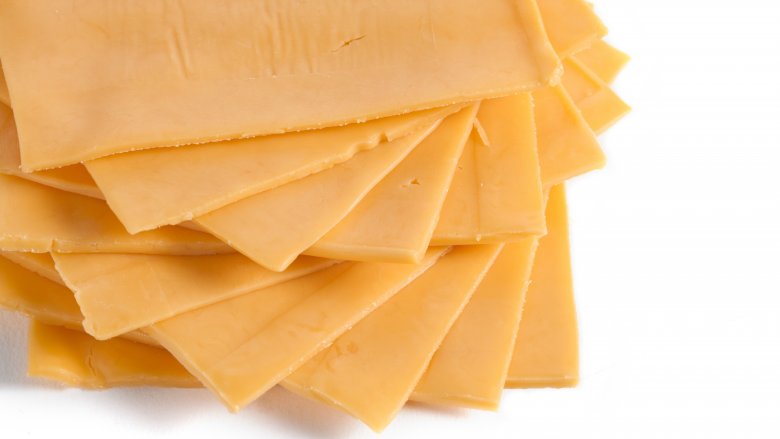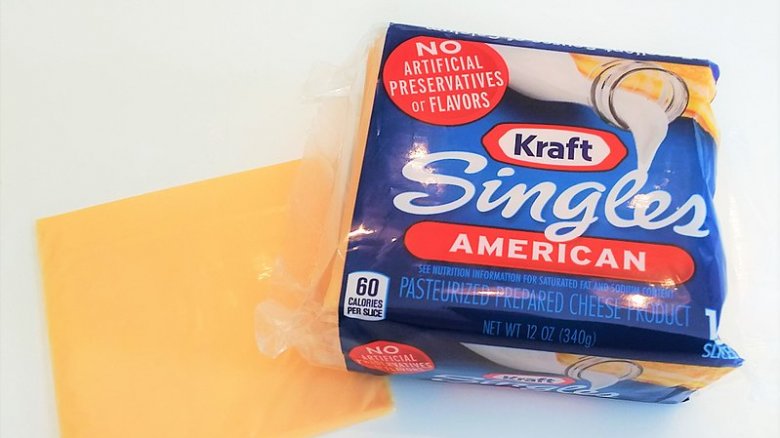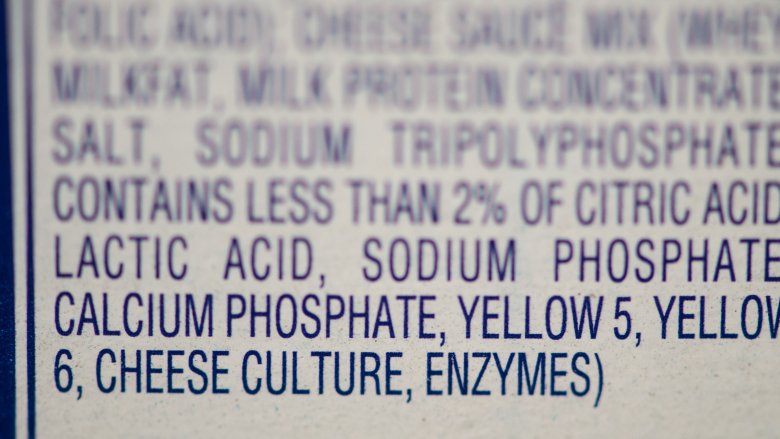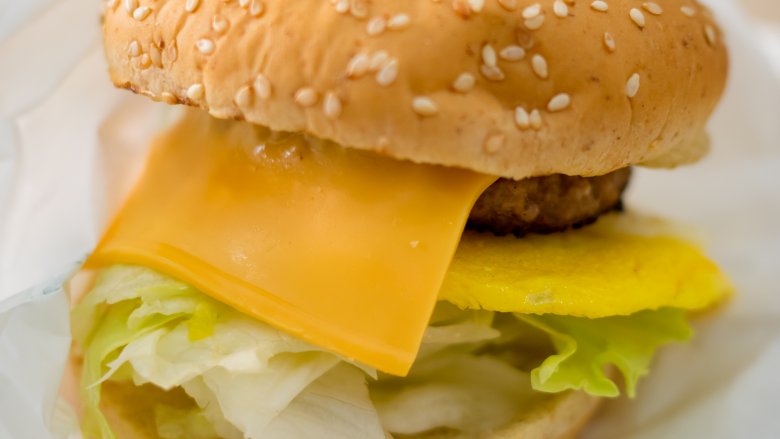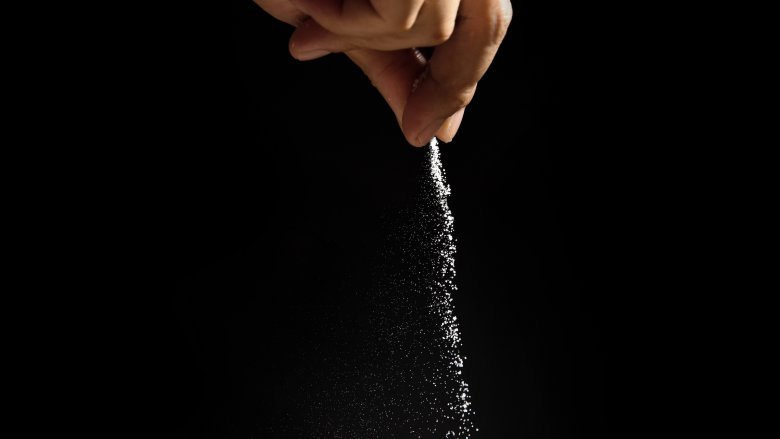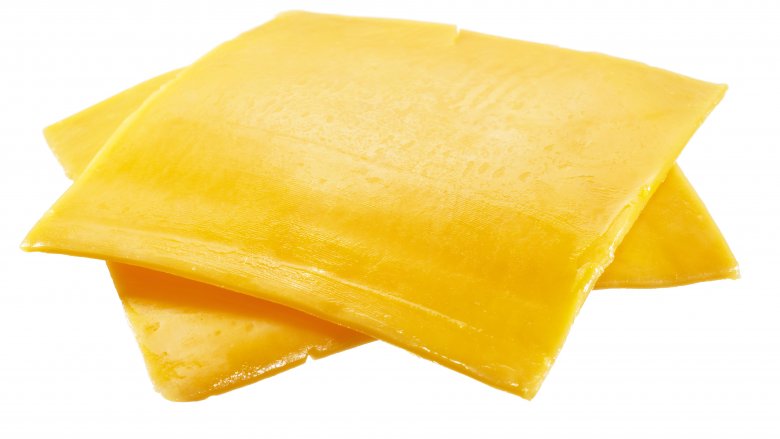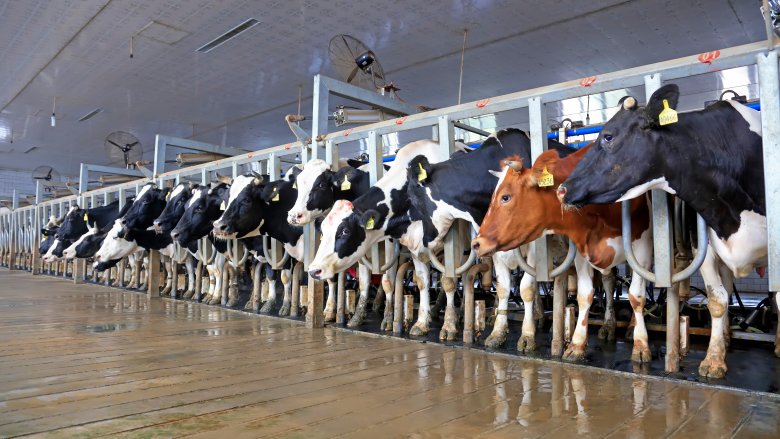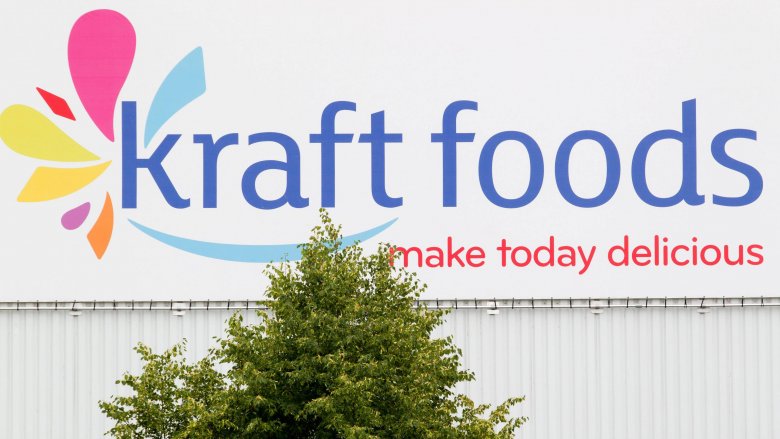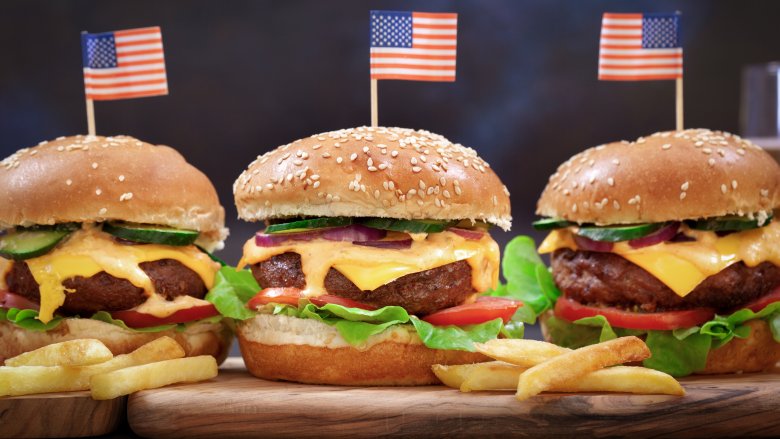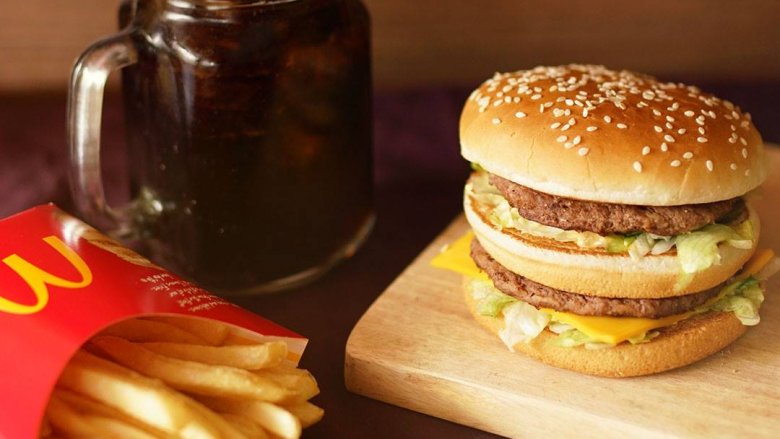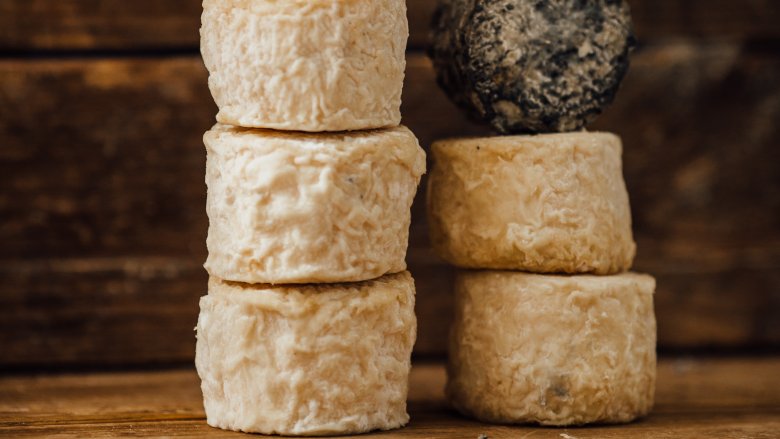The Real Reason American Cheese Is Dying
American cheese is dead. Millenials killed it.
Some version of that sentiment has been circulating across social and traditional media outlets recently. But even if you're suspicious of Twitter and the press, the data is clear: American cheese is going the way of comb headbands and Crystal Pepsi.
As Bloomberg points out, U.S. sales of American and other processed cheeses are expected to fall 1.6 percent this year, continuing a four-year slump in processed cheese sales. At American supermarkets, processed American cheese prices have dipped below $4 per pound for the first time since 2011. Meanwhile, at the Chicago Mercantile Exchange, the cheddar typically used to make American cheese is selling at a historical low.
American cheese, a high-fat, high-sodium, highly meltable blend of cheese and emulsifying agents, hit its heyday in the 1930s, when over 40 percent of the cheese consumed was American cheese made by Kraft. Over recent years, national tastes have turned away from synthetic, mass-manufactured cheese products to artisanal cheese makers, with millennials leading the way, sources say.
It's easy to point to hoity-toity, health-conscious, millennials — who get blamed for killing everything from breakfast cereal to golf — as the culprits behind the collapse of the iconic American cheese. But we've cut a little deeper to find the real reason American cheese is dying. Here's what we've sliced up.
It's (mostly) not real cheese
Kraft Singles. Velveeta Slices. Horizon Organic American Singles.
Notice anything in missing from the names of the major American cheese brands? How about the word "cheese"?
American cheese brands rely on sneaky terms like "slices" and "singles" in their titles because they're not legally allowed to call themselves "cheese" in most countries — including America. The FDA has long, lengthy guidelines on what can be called cheese and what must instead be called "pasteurized process cheese," "cheese food." or –most shamefully –"cheese product." Here are the basic rules:
-
Pasteurized process cheese: To qualify as pasteurized process cheese, the product must comply with a long list of ingredient and preparation requirements. The process typically involves mixing ready-made cheese into a "homogeneous plastic mass" with an emulsifier to create a uniform taste and texture. Examples include some deli-sliced American cheeses and Kraft Deli Deluxe.
-
Pasteurized process cheese food or spread: These products must have a minimum content of of 51 percent cheese. The food is considered a "spread" if it is spreadable at 70 degrees Fahrenheit. Horizon Organic American Singles and EconoMax Sandwich Slices are examples.
-
Pasteurized prepared cheese product: This title is reserved for American "cheeses" that contain less than 51 percent cheese. Kraft Singles, Velveeta Singles and Original, and Borden Fat-Free Singles are examples of "cheese products".
It's packed with hard-to-pronounce ingredients
So what is American cheese made of, if not pure cheese?
Ingredients may vary widely from brand to brand, of course, and depending on whether the item falls into the pasteurized process cheese/cheese food/ cheese product label. Cheeses labelled as "cheese product" tend to pack in something called milk protein concentrate or MPC, as Serious Eats reports. MPC is a powdery substance made of milk that's been stripped of fats, liquids, and minerals. The controversial ingredient is much cheaper than milk or cheese, and not a legally allowed diary ingredient for pasteurized process cheese food or spread.
Back in 2003, the FDA caught Kraft using MPC in the production of products previously labelled as "pasteurized process cheese food" during an inspection of their facilities. The FDA sent Kraft a cease and desist letter demanding that the company stop misbranding its American cheese as "food" because its use of milk protein concentrate "does not conform to the definition and standard."
Rather than lose money by switching to real ingredients, Kraft started calling its singles "pasteurized prepared cheese product," a category of product undefined FDA regulations and unhindered by ingredient restrictions. And competitor brands followed suit.
Beyond MPC, most American cheeses are packed with paragraphs of other ingredients that aren't milk or cheese. Grab a pack of American cheese and try pronouncing all of the ingredients on the back. Good luck with "apocarotenal" and "natamycin."
Since many Americans now live by the "Can't say it, don't eat it," mantra, the ingredients in American cheese may be a big reason for it's downfall.
Nutritionally, American cheese is super lame
Of course, not all cheeses are evil preservatives packed into a rubbery yellow square.
There are plenty of tasty, relatively healthy cheeses that serve as a good source of protein, calcium, and vitamin D when eaten in moderation. For example, an ounce of feta cheese packs in a mere 74 calories along with five grams of protein and 14 percent of your daily calcium. An ounce of goat cheese, for another, delivers five grams of protein and is associated with benefits like improved bone formation.
On the other hand, American cheese tends to stack up poorly when it comes to nutrition. Depending on the brand you're getting, American cheese may come in at around around 104 calories with four grams of protein per slice.
It's no wonder Americans are looking at healthier cheeses when assembling their sandwiches.
All that sodium could be killing you
Why are millennials so determined to assassinate American cheese? It could be a defense mechanism. They want to kill American cheese before it can kill us.
All the excess sodium in American cheese and other processed foods is killing us by the millions, according to research presented by the American Heart Association in 2013. Their findings were was based on a 2010 Global Burden of Diseases study, which analyzed international adult sodium intake from 1990 to 2010. The study found that excessive sodium consumption contributed to 2.3 million deaths around the world in the form of heart attacks, strokes, and other cardiovascular diseases. The study defined excessive sodium intake as more than 1,000 milligrams per day.
Currently, Americans eat a daily average of 3,400 milligrams of sodium. And where does more than 65 percent of that sodium come from? Not, as you might have thought, from the salt shaker — it's from processed foods like American cheese.
To give you some perspective: a single slice of Kraft cheese carries around 10 percent of your daily recommended sodium intake. Throw a slice on top of a burger with a tablespoon of ketchup (+167 milligrams), mustard (+168 milligrams), and mayonnaise (+105 milligrams), and you're looking at 1,000 milligrams of sodium packed into one meal.
Taste-wise, American cheese is super bland
You know how American cheese tastes and we're not here to mansplain why you shouldn't like it. Instead, we'll let some chefs, food writers, and everyday food fans take it from here:
Vox interviewed eight cheese experts to weigh in with their opinion on American cheese, and their responses ranged from nostalgic to resentful. "Let's be honest: American cheese is crap," put in Andy Jacobi, owner of Untamed Sandwiches and Untamed Taqueria. "... the worst variety of Cabot cheddar is still better than the best variety of American cheese."
Tia Keenan, cheese specialist, also condemned processed American cheese, describing the flavor of Kraft Singles as "vile." Heidi Gibson, commander-in-cheese at the American Grilled Cheese Kitchen agrees, noting, "I've always thought it was kind of gross."
Meanwhile, writers at Thrillest boldly named American cheese as "the worst," maintaining that "it tastes like someone painted your mouth with a sock." Buzzfeed News stated "American cheese is terrifying and do not even get me started on the texture."
On social media, American cheese is denounced by the public as "disgusting" and an "abomination unto mankind." But to give credit where credit is due, most everybody concedes is that American cheese is the best when it comes to being melted over a cheeseburger.
Producing cheese takes a toll on the environment
When it comes to proteins with a high-carbon footprint, cheese is among the worst of them — right behind beef and lamb. Cheese gobbles up a high amount of resources because raising an animal that bears milk produces a lot of greenhouse gases. Because of the high quantities of methane emitted by dairy cows, these beasts have a global warming impact that is 25 times higher than carbon.
Many kinds of cheeses — not just American — can take a toll on the environment. But cheeses produced locally tend to be more environmentally friendly, especially ones that are crafted through sustainable, organic methods. Similarly, lower fat cheeses tend to have a smaller carbon footprint, in addition to being friendlier to your waistline. And the less processing cheese undergoes, the less resources it consumes.
In terms of green cheeses, your best bets are goat cheese, brie, and Camembert, as dairy researcher Steve Zeng explained in an interview with Slate. Highly processed American cheeses don't qualify.
Big American cheese been hit by some major recalls
In the summer of 2015, Kraft Heinz started receiving strange phone calls. The first caller claimed they'd choked on a wrapper. So did the second.Then, a third caller claimed the same thing.
That summer, Kraft received 10 complaints about its packaging. The company issued a major recall, explaining in a press release that a "thin strip of the individual packaging film may remain adhered to the slice." As representatives noted, "if the film sticks to the slice and is not removed, it could potentially cause a choking hazard." The recall affected 36,000 cases of Kraft Singles shipped to the U.S. and around the world.
Not to "single" out Kraft, but this wouldn't be the first time the cheese empire has issued a recall. It recently issued a recall on its Taco Bell Salsa Con Queso Mild Cheese Dip after discovering the product showed signs it could permit the growth of botulism-causing bacteria. Before that, its iconic mac and cheese was recalled because some of the boxes contained small pieces of metal.
Scary recalls like that make it unsurprising that people are starting to tun away from processed cheese.
It's probably not even American
Sure, there are a lot of things that aren't American that aren't dying. Peruvian food. Kangaroos. Shakira.
But calling American cheese "American" is a goshdarn lie — or at the very least, not quite the whole truth–depending on who you ask.
The story of not-so-American cheese begins not on U.S. soil, but in the mountains of Switzerland. It was 1911, and Swiss cheesemen Walter Gerber and Fritz Stettler were determined to create a cheese with a long lifespan that could resist melting when shipped to tropical climates. The two cheeseheads discovered adding in sodium citrate would allow cheese to melt at low temperatures without losing fat.
About five years later, an American cheese distributor named James L. Kraft nabbed an American patent for this process for manufacturing cheese. Kraft announced he'd discovered a way to keep cheddar cheese "indefinitely without spoiling, under conditions which would ordinarily cause it to spoil." Though cheese snobs initially dismissed the strange product as "embalmed cheese," it's long shelf-life and shippability made Kraft cheese an instant, massive success.
Since millennials have been known for embracing local foods, is it any surprise they're ditching a food hat isn't even truly American?
Even fast food chains are ditching it
Once famed for their additive-ridden, highly processed food-like products, select major fast food chains have embarked on campaigns to cut artificial ingredients from their menus. For many brands, that means stripping the slice of processed cheese off their burgers.
As Bloomberg points out, Wendy's now tops burgers with Asiago. Panera Bread swapped American cheese for a combination of fontina, monteau, and gouda. And even McDonald's has reinvented their Big Mac's cheese with one that doesn't contain artificial preservatives.
Outlier Arby's tops its meaty sandwiches with Swiss, Parmesan, and cheddar. Jack in the Box supplements American- and Swiss-style cheese on classic cheeseburgers, but tends to favor fancier cheeses on it's specialty creations — like the provolone on the Buttery Jack or the blue cheese on the ribeye burger. You're unlikely to find plasticky American cheese on your patty at Johnny Rockets, either. The diner tops its burgers with Wisconsin Cheddar, Swiss, and pepper jack cheese.
There more American-made cheeses available than ever before
We've used the term "American cheese" pretty liberally to apply to the processed, plasticky Kraft singles and competitors. But if we were to extend the phrase to include all the cheese that is being currently made in America, it would be a different story.
Right now, there are hundreds of local dairy farms based in the U.S. combining traditional European techniques with modern cheese innovations to come up with some truly unreal quesos. Some of our favorites include:
-
Cowgirl Creamery. Based on the coast of California, Cowgirl Creamery folds fresh, organic ingredients into award-winning cheeses. Try their organic Mt Tam, a triple-cream aged cheese with notes of white mushroom and cultured butter.
-
Vermont Shepherd. Based in one of the oldest sheep farms in the state, Vermont Shepherd offers seasonal products from the milk of their very own sheep. The family-run creamery produces cheeses in small, 10- to 30-wheel batches.
-
Nettle Meadow Farm. The New Jersey-based farm makes semi-aged, chevre, fromage blanc, and fromage frais cheeses from their own goats and sheep. The animals are humanely raised on a diet of hay, grains, wild herbs, garlic, and raspberry leaf.
In the end, there is only so much cheese we can eat in one lifetime. With so many exquisite varieties to try, why would you waste your fridge space on Kraft Singles? (Just kidding, we know you don't need to refrigerate that stuff.)
